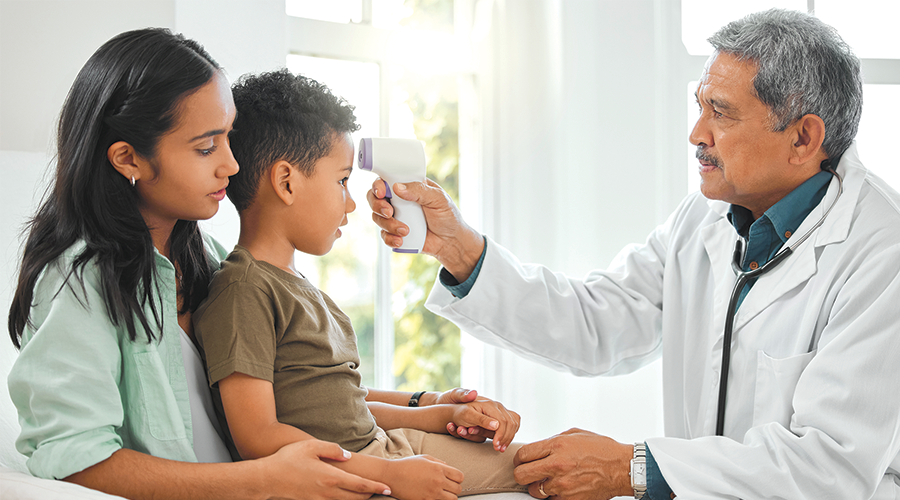Whooping cough, also known as pertussis, is spreading faster than it has in years. As children went back to school in September, numbers began to climb. In fact, 291 cases were reported for the week ending September 14, according to the U.S. Centers for Disease Control and Prevention. Numbers haven’t been that high since 2015.
There have been over 16,000 cases that have been reported so far this year. According to the CDC, this is more than four times higher than the infections reported by this time last year.
U.S. health officials warned of a resurgence in breakthrough infections in older children and adults. However, it’s the unvaccinated young children and newborns of unvaccinated moms who are the most vulnerable to both infection and severe disease. The disease is most dangerous to babies, because 1 in 3 who get it require hospitalization.
According to the CDC, reported cases of those with whooping cough are returning to pre-pandemic levels, where more than 10,000 cases in the U.S. are typically reported each year. Leading in the number of cases are Pennsylvania, New York, and California, in that order. So far, Pennsylvania has recorded 2,008 infections this year, which is nearly double California’s numbers.
Why is this big outbreak happening right now? Experts say there are numerous possible explanations. For instance, doctors are testing for whooping cough more these days and identifying more cases. There’s also a possibility that the bacterium that causes the disease has mutated. Plus, during the days of the pandemic, people got behind on their vaccines and many haven’t caught back up.
One challenge with the whooping cough vaccine is that it’s a five-dose series over the course of the first six years of a child’s life. It requires regular visits to a doctor or pharmacy. Another issue is vaccine hesitancy and parents who refuse to vaccinate their kids.
Whooping cough looks like a mild cold for the first couple of weeks. But then the coughing fits start. When babies get it, they will be “whooping” as they continuously cough. If they look like they’re not breathing at all, it can be life-threatening and a sign they need to go to the hospital. Whooping cough can also lead to pneumonia and other complications.
The most severe cases are in infants because their airways are so small and can become easily blocked. Therefore, babies cannot get their first dose of the vaccine until they’re two months old. This is why the CDC recommends that pregnant women should get the pertussis vaccine early in the last trimester of every pregnancy to protect their newborns for their first two months of life.
The DTaP vaccine is recommended for babies who are two months old and up, and children under 7 years old. Older children and adults are advised to get the vaccine as well as a booster every 10 years.
More articles from the December 2024 issue:
- Pill Variations and Non-Adherence
- The Power of Unique Endcaps
- Prescription Flavoring
- Beyond Prescription Dispensing
- ADHD Medications
- Phishing Scams
- It’s All in the Packaging
- Whooping Cough on the Rise
A Member-Owned Company Serving Independent Pharmacies
PBA Health is dedicated to helping independent pharmacies reach their full potential on the buy-side of their business. Founded and run by pharmacists, PBA Health serves independent pharmacies with group purchasing services, wholesaler contract negotiations, proprietary purchasing tools, and more.
An HDA member, PBA Health operates its own NABP-accredited warehouse with more than 6,000 SKUs, including brands, generics, narcotics CII-CV, cold-storage products, and over-the-counter (OTC) products — offering the lowest prices in the secondary market.











